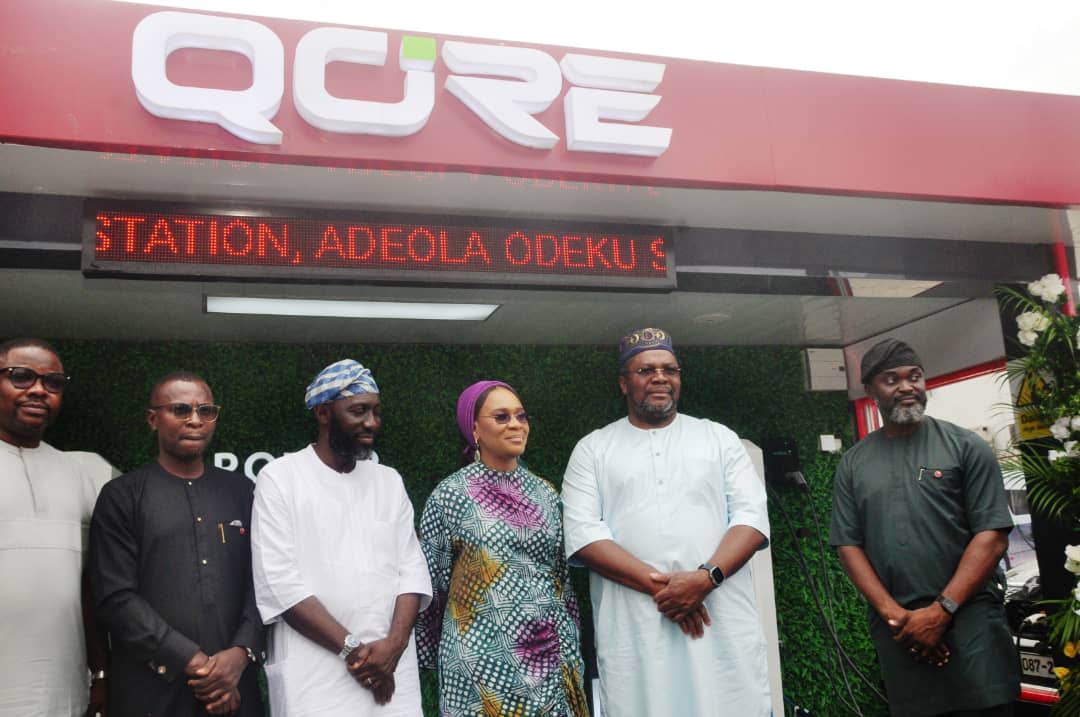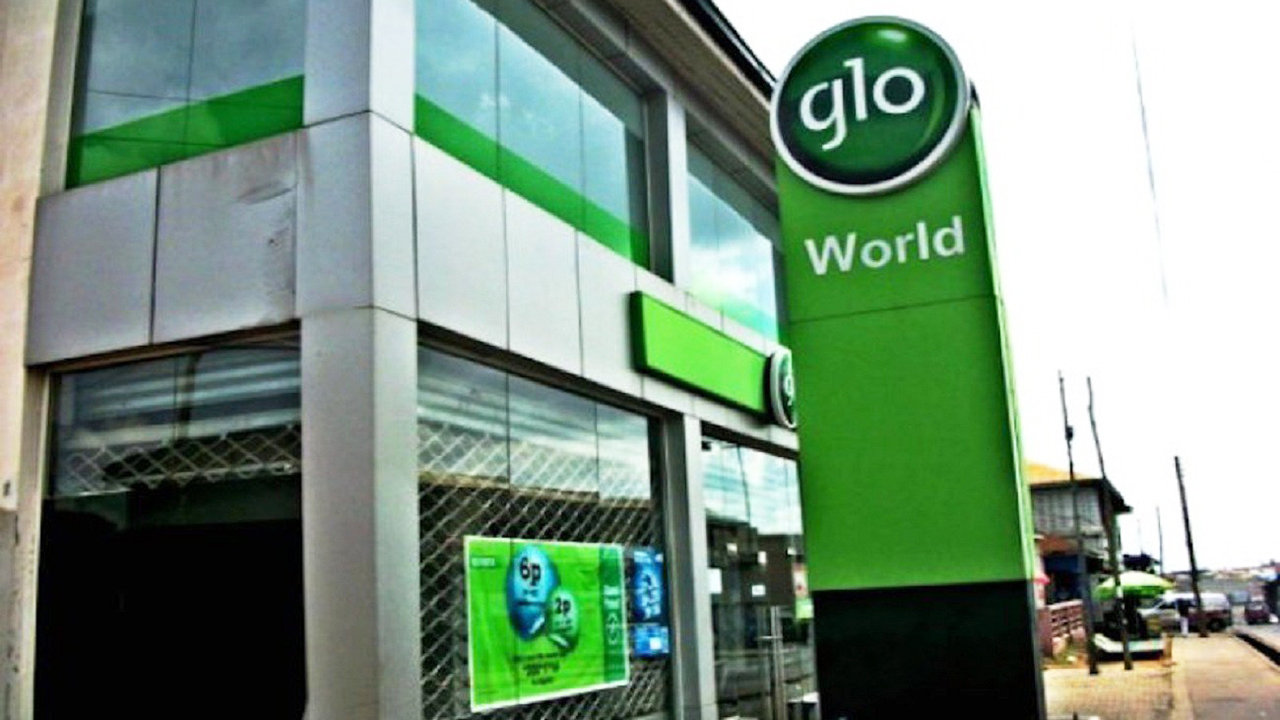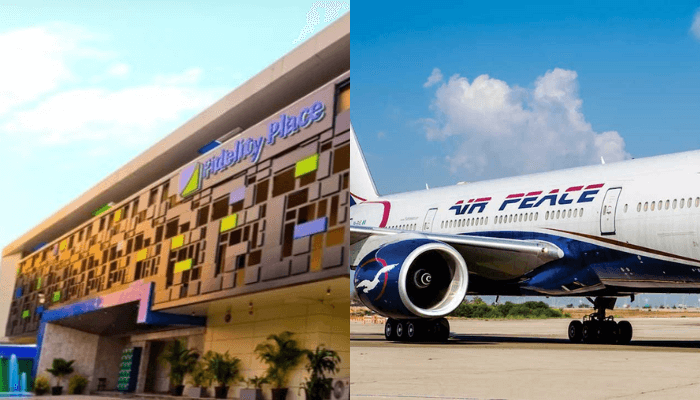Business
Electric Vehicle Revolution: Sterling Bank Launches Qore to Accelerate Race

Nigeria’s leading commercial bank and one of Africa’s fastest-growing companies, Sterling Bank, has changed the course of Nigeria’s energy and transportation sectors with the launch of Qore; its suite of renewable energy-powered transportation solutions. Qore will offer the purchase and financing of electric vehicles (EVs), EV charging stations, conversion of fossil-fuel-powered engines to EV engines, battery swapping services for modular EVs, and more.
Speaking at the launch of Nigeria’s first publicly available EV charging station in Lagos, CEO of Sterling Bank, Abubakar Suleiman, said that the launch of Qore is a significant milestone in the bank’s journey towards powering Nigeria’s transportation sector with renewable energy.
According to Suleiman, “Qore will revolutionise the very idea of how we power movement by providing clean, sustainable and cost-effective options for individuals and businesses, while impacting positively on the sector’s environmental footprint.“
Also speaking at the launch, Group Head for Renewable Energy and Transportation at Sterling, Olabanjo Alimi, further explained that Qore focuses on improving mobility services in Nigeria by providing affordable and cleaner transportation alternatives to petrol and diesel powered vehicles. He described Qore as a “mobility project” that will offer a range of products, including the manufacture and sale of EVs, financing for the purchase and distribution of EVs, and mobility-as-a-service options to cater to first- and last-mile transportation.
Alimi said, “Qore will deliver innovative solutions through partnerships that provide sustainable energy options for vehicles through stations such as this. This will accelerate the adoption of clean mobility solutions that allow interested customers to buy EVs directly, or even convert their existing petrol- or diesel-powered vehicles to run on electricity.”
“Along with the readily available technology to convert petrol or diesel powered vehicles, Qore will drive EV adoption in the Nigerian market by providing charging infrastructure and battery swapping services to quicken the turnaround time of restoring power to EVs.”
He continued by saying that Qore had pioneered, along with the first publicly available charging station in the country, a proprietary payment solution that will allow for direct interaction with the battery management system of vehicles that charge up at the station.
The Group Head concluded by highlighting that this is a watershed moment for the Nigerian EV market, emphasizing Qore’s openness to partnerships and collaborations to increase the creation of EV infrastructure and adoption in the country.
The adoption of Qore’s suite of solutions is already increasing with the acquisition of 100 electric tricycles to power transportation in the Kano metropolis, as well as the conversion of diesel-engine ferries to electric power to improve the commute of individuals and businesses on Lagos’ waterways. The newly launched charging station adds another layer to the robust offerings.
Sterling has set itself apart as the first corporate organisation on the African continent to fully power up its offices with a renewable energy source by installing over 3000 Building Integrated Photovoltaic (BIPV) panels, generating 1 megawatt (1 MW) of electricity. This move will make the structure one of the largest on the continent, primarily powered by renewable energy, demonstrating the bank’s commitment to the growth and development of renewable energy in Nigeria.
Furthermore, the bank recently launched Imperium; an alternative energy solution, to power Nigerian homes and businesses through solar and renewable energy services tailored specifically for Nigeria’s peculiar energy needs.
Renowned for its now famous HEART of Sterling strategy; which focuses major investments in the Health, Education, Agriculture, Renewable Energy and Transportation sectors of the Nigerian economy, its irreverent brand voice and enviable talent management practices, the bank recently completed a major milestone towards the completion of its transformation into a financial holdings company with the relisting of its shares on the floor of the Nigerian Exchange (NGX).
The bank has maintained and increased momentum in 2023 with her citation as Africa’s Most Valuable Commercial Bank Brand for 2023 by the African Brand Magazine , in a poll conducted by GeoPoll and Kantar; two of the world’s leading brand research firms, a top three employer in Nigeria by LinkedIn in the social network’s annual Top 25 List, and most recently, one of the top 100 fastest growing companies in Africa by the prestigious Financial Times.
Business
FirstBank Partners Verve to Issue Free Debit Cards in Nationwide Promo

First Bank of Nigeria Limited (FirstBank), Nigeria’s premier and leading financial inclusion services provider, has announced the launch of the Verve Flash Promo, a special initiative rewarding customers with free Verve cards.
The campaign, which commenced on 6 October 2025, and will run until 30 January 2026, is exclusively targeted at FirstBank customers whose ATM cards have expired.
The free cards will be issued daily to 131 customers on a first-come, first-served basis across the Bank’s branches, nationwide. FirstBank’s unwavering commitment to convenience, accessibility, and customer satisfaction.
Speaking on the rewards to FirstBank customers, Chuma Ezirim, the Group Executive, e-Business and Retail Products at FirstBank, said: “The Verve Flash Promo is not just about rewarding customers with free verve debit cards; it is about celebrating our legacy of 131 years of trust, resilience, and innovation in the Nigerian financial services industry. At FirstBank, we remain committed to providing customer-centric solutions that enable secure, seamless, and convenient payment experiences. Partnering with Verve International on these initiatives, including the Verve Good Life promo, underscores our shared vision of deepening financial inclusion while rewarding our loyal customers for their continuous patronage.”
Also commenting, Vincent Ogbunude, Managing Director, Verve International, noted:
“Through strategic collaborations like this with FirstBank, we continue to demonstrate Verve’s commitment to enhancing access to seamless payment solutions for every Nigerian. The Verve Flash Promo not only rewards loyal customers but also reinforces our vision of making everyday transactions more rewarding, secure, and convenient. As we extend the Good Life Promo, we remain steadfast in our goal of deepening financial inclusion while delivering real value to Verve cardholders across the country.”
Meanwhile, the ongoing Verve Good Life promo, designed to reward Verve debit card holders for using their cards at specific merchant points, has been extended to 30 November 2025.
During the period, Verve Card holders enjoy 10% cashback at The Place Restaurant, Quickteller, Buypower, Filmhouse, AlliExpress, Addide Supermarkets, and Chowdeck app every Thursday to Sunday.
Verve cardholders can now enjoy a 10% cashback on the Google Play Store any day of the week throughout the Good Life Promo, which runs until 30 November 2025. Moreso, every transaction made with a Verve card whether on ATMs, POS terminals, or online platforms automatically earns customers a chance to win up to ₦1,000,000.
Business
Glo Enhances Data Bundles, Offers More Data at No Extra Cost

Nigeria’s leading telecommunications company, Globacom, has announced enhancement of its data bundles to give subscribers more data volume at the same affordable prices.
The upgrade reinforces the company’s commitment to providing superior value and exceptional customer satisfaction.
The upgraded Glo Data Bundles are enhanced versions of the existing daily, weekly, and monthly plans, giving subscribers more data at no additional cost.
These improvements offer users greater freedom and convenience to enjoy their favourite online activities from streaming and gaming to social media, video calls, and more.
For daily users, the ₦100 plan has been upgraded from 105MB to 125MB, giving light internet users even more data to browse, chat, and stream short videos conveniently.
The weekly bundles have also received notable boosts, such as the ₦1,500 plan, which now offers 6GB instead of 5.9GB, enabling subscribers to stay connected longer.
Heavy data consumers will also enjoy remarkable value on the monthly plans. The ₦2,000 bundle now gives 6.25GB, while the ₦10,000 package has been enhanced from 38GB to 42GB, allowing users to do more from video streaming and large file downloads to remote work and virtual meetings.
Students are not left out, as the Campus Booster Plan has been upgraded with higher data allowances, ensuring seamless access to academic resources and social networks while on campus.
Globacom noted that the revised bundles are available to all Glo customers prepaid, postpaid, and hybrid and can be activated by dialing *312#, using the Glo Café app (available on Android and iOS), or visiting hsi.glo.com.
The company added that subscribers can use, share, or gift data through *312# or the Glo Café app. Customers will also continue to receive data usage alerts at 75% and 100% consumption levels to help monitor usage effectively.
Unused data is automatically rolled over upon renewal before expiry or when a new plan is purchased within the grace period (ranging from one to seven days, depending on the plan).
Globacom reaffirmed its commitment to empowering Nigerians with reliable and affordable data access, urging customers to take advantage of the revised data bundles that combine affordability, quality, and more browsing power ensuring every Glo subscriber enjoys more data without paying more.
Business
Maiden Flight to Heathrow Airport: Fidelity Bank Hails Air Peace

Fidelity Bank Plc has congratulated Air Peace on the successful launch of its maiden direct flight from Lagos to London Heathrow, describing the milestone as a significant achievement for Nigeria’s aviation sector and a testament to the power of indigenous partnerships.
The commendation was delivered by Dr. Nneka Onyeali-Ikpe, managing director of Fidelity Bank, during a special event held in Lagos to celebrate the airline’s expansion into the European market.
“This is not just a win for Air Peace, but a win for Nigeria,” Onyeali-Ikpe said. “It reflects the strength of home-grown businesses and the impact of strategic financial support in enabling national champions to thrive on the global stage.”
Nigeria CommunicationsWeek reports that Fidelity Bank has played a pivotal role in Air Peace’s growth, providing early financial backing and advisory services that helped the airline become the largest carrier in West Africa. The bank continues to support Air Peace through payment processing and other financial services
The launch of the London route marks a new chapter for Air Peace, which now joins a select group of African airlines operating direct flights to Heathrow.
The development is expected to boost tourism, trade, and connectivity between Nigeria and the United Kingdom.
Speaking at the event, Allen Onyema, Chairman of Air Peace, expressed gratitude to Fidelity Bank for its unwavering support and reaffirmed the airline’s commitment to excellence and service.
“This partnership has been instrumental in our journey,” Onyema said. “We are proud to fly the Nigerian flag across international skies.”
Industry stakeholders present at the event praised the collaboration between the two companies as a model for sustainable business growth and national development.






